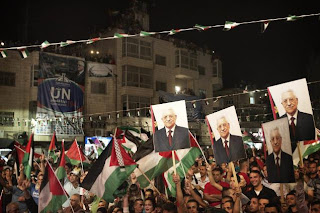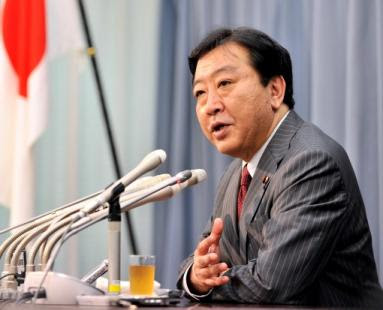________________________________________________
Source: http://www.bbc.co.uk/news/world-asia-pacific-15007841
In order to open a new chapter on international relations, Egypt and Ethiopia agree that the Nile basin is a bridge and not a barrier. The future is a new relationship between Ethiopia and Egypt based on a win-win strategy. The past is an old relationship based on a zero-sum game. That is gone. There is no going back. Under the Mubarak regime, Ethiopia took the lead in the campaign against Egypt -- for whom the Nile is just about the only source of water -- but Sharaf's government has repeatedly stressed its intention to resolve the dispute. Sharaf, Egypt’s Prime Minister, said that both countries’ main and ultimate goal is to develop an integrated development plan that benefits both. And they have agreed on the establishment of a political dialogue mechanism at the level of foreign ministers to ensure regular meetings. On the contrary, Ethiopia confirms that they won’t make a move and that they will wait for the Egyptian side to make its decision in the regard.
Setting the Nile basin as a bridge and not as a subject of conflicts is the beginning of a new relationship between two neighbor countries based on confidence and friendship, leading to an example of fraternity for other African countries.
ATTACKS IN IRAQ'S HOLY CITY OF KARBALA

On Sunday 25th of September 2011, four bombs exploded killing fifteen people and the number of casualties has already reached eighty. This number could rise, as wounded keep arriving to the city's hospitals. All the bombs exploded within five minutes in Karbala, a city situated in the southwest of Baghdad.
The first car bomb exploded in front of the Department of the Interior, where identity cards and passports are made, and the second one exploded in the same place once the help arrived. The third bomb exploded next to a building, damaging the facade. Finally, the fourth bomb was detonated about a mile away from Iman Abbas temple.
According to Tariq al-Khaikani, member of Karbala’s provincial council, the bombs were detonated in the most popular parts of the city, in order to kill as much people as possible.
The article mentions one of the biggest attacks in Iraq, when a bus full Shiites was stopped in the Sunni dominated province of Anbar, while travelling to a sanctuary in Damask. This took place on September 12, and 22 of the passengers were killed.
In my opinion, when a country such as Iraq suffers an important attack, is very difficult to know the exact number of victims. This is the reason why it is sated that the number of casualties range between 40 and 90. Karbala is a holy Shiite city where numerous Sunni attacks have been committed against the Shiite pilgrims.
Taking into account that only in 2007 more than 7.500 people were murdered due to the civil war, we can conclude that even though Iraq has suffered in the last month various attacks, the number of attacks has decreased drastically. I cannot but agree with Tariq al-Khaikani and think that one of the factors that influence the numerous attacks in Iraq is the lack of ministers of defense or interior. Both these roles have been overseen by the Prime Minister, Nuri Kamal al-Maliki, who promised to name two other persons for these roles. In my opinion what they want to achieve is to destabilize the new and fragile government and maybe the presence of the United States military could help in guarantee the stability of the country, while Iraq is reconstructed.


Last Tuesday, in the state of
The tragedy from last week is just another example of how Mexican cartels resort to huge violence in order to control the drug market. Los Zetas, which control most of Veracruz - now a drug hub- kidnap, torture and kill other cartel’s members, threaten the population and blackmail politicians and important Mexican businessmen. Given the worsening of the situation, in 2006, Mexican President Felipe Calderón announced the beginning of the famous “war on drugs”, which would employ all national forces -including the army- to fight drug cartels. Nevertheless, having soldiers in the streets does not seem to have achieved the goals. On the contrary, cartels like Los Zetas o Sinaloa have grown in number and dramatically increased their power. The day to day in
Source: BBC News, September 21st 2011
U.S. president, Barack Obama proposed on the U.S. high-tech industry feasible ideas to generate more jobs in the so-called Silicon Valley.

The U.S. interest in the behavior of the variety of international markets (in terms of marketing and job creation) has been an issue not only highlighted by the Obama administration, but for the development of the electronics industry in California; an industry that a few decades ago, with the advent of Internet technology is now consolidated at Silicon Valley. The analysis and study of this field is a must in the Obama’s presidential cabinet. The U.S. government was in a preventive focus to an escalation of U.S. migrants and technology-based companies to countries like India, where, for example, labor is expanding quickly. The tasks or services to other countries is the concern of a region that strives to keep its place at the higher level from which they led the "boom" of the internet at the end of last century.
It is remarkable to mention the stability of the high tech industry in the U.S., primarily in California; however, the president Barack Obama has ordered the creation of larger strategies to extend that stability and finally to attract more capital through human resources to contribute in local industry.
I would like to end it up with this quote of Obama during his lecture at LinkedIn in Silicon Valley: We’re talking about going back to the rates of the ‘90s when, as I recall, Silicon Valley was doing pretty good. During that period, the rich got richer. The middle class expanded. Everybody was doing well. We’re not punishing those doing well. That’s the last thing I want to do. The question is how can we afford to continue making the investments that can propel America forward? That quote makes us wondering, if even today, with all the background and current situation of other economic emerging powers… how could they do it?
http://www.washingtonpost.com/wp-dyn/content/article/2011/02/17/AR2011021702500.html

The fact that this has happened shows that not enough care is being put in producing and preparing the foods for this program. I believe that this incident should be thoroughly investigated to find the source of the poison, and that from now on the Peruvian government should implement stricter controls in order to avoid new cases of poisoning.
Source: http://www.bbc.co.uk/news/world-latin-america-15010198



OPINION:
As I said the Greek situation is very delicate and they possible aids it may receive are also very delicate. In the articles I’ve read some possible solutions and none of them show a bright future for Greece. One of the solutions to the crisis would be the default; this would be the best for Greece because it would be relieving Greece from paying the debt but it may have negative consequences for countries like Italy or maybe Spain. Can Greece receive more help from other countries? In this times Europe should be together and help everyone in the union, but Greece has receive a lot of financial aids already, there is a lot of controversy with this issue. I think Greece shouldn’t be left alone in a moment like this, Greece is not only a bunch of banks politicians and if they exit the euro or they are left bankrupt they may be some very negative consequences for the Greek people. I personally have a very strong affection for Greece since I have family there and I lived there for some time, and it’s quite sad to see how it has degraded into riots and chaos. I would like to see your opinion, should Greece exit the euro zone and be left on its own to avoid giving them more economic help?